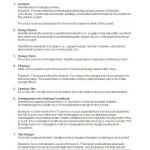Indoor Plants: Bringing Life and Beauty to Your Home
Indoor plants, the verdant jewels of our homes, add a touch of nature's artistry to our living spaces. They enhance our surroundings, bring calming vibes, and even contribute to our well-being. Whether you're a seasoned plant enthusiast or a curious beginner, the world of indoor plants offers a diverse range of options to suit every taste and lifestyle. This article will delve into the fascinating realm of indoor plants, exploring their benefits, care requirements, and some popular choices.
Benefits of Indoor Plants
The advantages of incorporating indoor plants into your home extend far beyond aesthetics. They have a profound impact on our physical and mental health. Studies have shown that indoor plants can improve air quality, reduce stress, and boost productivity.
Plants naturally purify the air by absorbing harmful pollutants and releasing oxygen. This process, known as phytoremediation, can significantly improve the air quality within your home, particularly in areas with limited ventilation. For individuals with allergies or sensitivities, indoor plants can provide a welcome respite from airborne irritants.
Beyond their air-purifying capabilities, indoor plants offer a therapeutic effect on our well-being. Studies have shown that being surrounded by greenery can reduce stress levels, lower blood pressure, and even improve concentration. The simple act of caring for a plant can provide a sense of fulfillment and connection to nature.
Choosing the Right Indoor Plants
Selecting the perfect indoor plants for your home depends on several factors: your lifestyle, the lighting conditions in your space, and your personal preferences. Some plants thrive in bright, sunny locations, while others prefer shady spots. It's essential to research the specific requirements of each plant to ensure its survival and flourishing.
Consider the size and growth habits of the plants when making your choices. Some plants remain compact and can be displayed on shelves or tables, while others can grow quite large and might require floor space. The aesthetic appeal and potential fragrance of plants also play a role in the decision-making process.
For beginners, there are several easy-to-care-for plant options, such as snake plants, ZZ plants, and pothos. These plants are known for their hardiness and ability to tolerate some neglect, making them ideal for those with busy schedules. More experienced plant enthusiasts might explore the fascinating world of orchids, ferns, or succulents, each with their unique care requirements and visual appeal.
Care Tips for Indoor Plants
Providing proper care for your indoor plants is vital for their health and longevity. This involves understanding their specific needs in terms of light, water, humidity, and nutrients. Some plants require regular watering, while others prefer drier conditions.
Light is crucial for plant growth. It's important to place your plants in locations that receive adequate sunlight. If you have a room with low light, consider selecting plants that thrive under such conditions. Regular fertilization is also essential for providing the plants with the necessary nutrients for healthy growth.
Monitoring your plants for signs of stress or disease is crucial. Pests such as spider mites and aphids can infest plants, while fungal diseases can also affect their health. Early detection and treatment are essential to prevent further damage and ensure the longevity of your green companions.
Indoor plants bring a touch of nature's beauty, serenity, and well-being to our homes. By understanding their needs and providing them with proper care, we can enjoy their refreshing presence and reap the numerous benefits they offer.

93 Plantas De Interior Para Comprar Bonitas Y Decorativas

93 Plantas De Interior Para Comprar Bonitas Y Decorativas

Las 10 Mejores Plantas De Interior Fáciles Cuidar

10 Plantas De Interior Resistentes Muy Fáciles Cuidar Flores A Domicilio

Comprar Plantas De Interior A Domicilio Fronda

Plantas De Interior Que Son Tendencia Beniverd Viveros

30 Plantas De Interior Resistentes Y Fáciles Cuidar Handfie

41 Plantas De Interior Resistentes Y Fáciles Mantener

45 Plantas De Interior Resistentes Y Muy Fáciles Cuidar

Plantas De Interior Que Crecen Muy Bien En Espacios Con Poca Luz Foto 1








